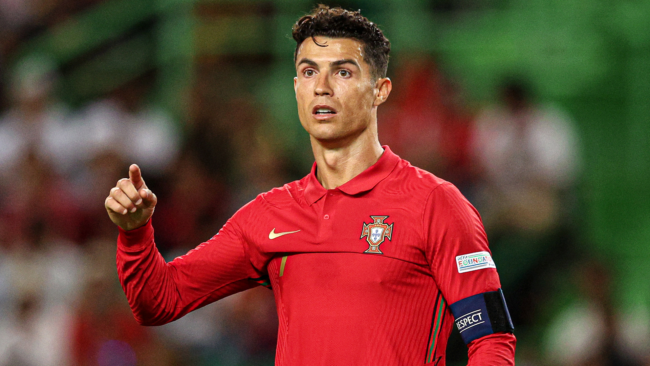

By Kayode Adebiyi and Ijeoma Okigbo
As preparations for the 9th edition of the FIFA Women World Cup to be co-hosted by Australia and New Zealand continue, the camp of Africa’s most successful female national team, the Super Falcons, seems to be in disarray.
Nigeria’s senior female national football team, which is among a select group of elite teams making a record 9th appearance at the event, leads South Africa, Zambia and Morocco as Africa’s representatives.
However, the team, not strange to controversies over poor preparation and remuneration issues, has found itself in yet another avoidable storm, this time between the Nigeria Football Federation (NFF) and Falcons head coach Randy Waldrum.
It began when Waldrum, in a chat with ‘On The Whistle’ podcast, challenged NFF, claiming that he was owed 14 months’ salary until a few weeks ago when the NFF paid for seven months.
Waldrum is also the coach of the University of Pittsburgh Women’s Soccer team,
He also said that FIFA had in October 2022 disbursed $960,000 to all the teams that qualified for the World Cup to prepare for the tournament.
The coach also mentioned a backlog of bonuses dating back to 2021 being owed to some players.
“It’s been very frustrating in recent weeks, months with the federation and lack of support we have gotten in different levels.
“I think we have had five international windows over these last months to get ready.
“But the hard part is that we are supposed to have had a camp in Nigeria for about 10 or 12 days before going to Australia for another 15 days.
“But for whatever reason, the federation canceled the camp in Nigeria.
“So instead of being able to look at all the players again and bring in a few more, I had to just pick the final 23 based on the last camp”, he said.
In an equally explosive response, the NFF, through its Director of Communication, Demola Olajire, accused Waldrum of incompetence.
“He is an incompetent loudmouth who has found his voice now that he is about to achieve his only ambition of leading a national team to the women’s World Cup”, Olajire fired back.
On the $960 FIFA disbursement, the federation seemed to hint that the money had been spent.
“Everyone knows that FIFA pays preparation money for every team going to the World Cup.
“The team travelled to Japan to play matches, Mexico for a tournament and travelled to Turkey to play matches. Is it Mr Waldrum that has been paying for the trips?”
Also, in a leaked private telephone conversation, Olajire made several allegations against Waldrum, including poor judgment, team selection, and discrimination against home-based players.
The NFF was also accused of saying that it will not pay the players’ bonuses because FIFA will do so through the $30,000 it earmarked for each player during the first round of the tournament.
The world football ruling body pledged to pay more as teams progress.
This has caused skirmishes between the players/team officials and the federation.
But football enthusiasts believe that the NFF cannot and should not exonerate itself from a problem.
In 2019, during the last edition of the event in France, Super Falcons refused to leave their hotel in protest against the non-payment of bonuses by the NFF.
A player who spoke to the press alleged that they were owed allowances for matches played two and three years before then and five-day camp bonuses for the World Cup.
At last year’s Women’s Africa Cup of Nations (WAFCON), players failed to return to training for their third-place match against Zambia over unpaid allowances, having lost to Morocco in the semi-finals.
In 2016, when the team won the continental showpiece for the eighth time, players refused to leave their hotel in Abuja until they were paid their allowances and bonuses.
Football enthusiasts say recurring debates over poor preparations and the inability to pay allowances and bonuses during every major tournament tell on the team’s morale and performance.
Ranked 40th in the world and first in Africa, the Super Falcons have not really flourished at the highest level of national team football in spite of parading some of the greatest stars in the game.
The farthest the team had gone at the World Cup was in 1999 when they reached the quarter-final stage.
Even on the continent, Super Falcon’s dominance is being challenged by the likes of South Africa, Ghana, Morocco, Zambia and Cote D’Ivoire.
As favorites at last year’s WAFCON in Morocco, the former champions could only manage a fourth-place finish which earned it the final African ticket on the road to Australia and New Zealand.
Women’s football aficionados warn that the Super Falcons could begin to experience a steady decline if the NFF does not put its house in order.
While some are of the opinion that the federation’s persistent cold treatment of the Super Falcons has a gender undertone, others are quick to point out similar treatment against the male national team, the Super Eagles.
“Even during the last AFCON, there was a rift between the NFF and the Super Eagles over match bonuses.
“In 2019, former President Muhammadu Buhari had to order a full-scale investigation into the Super Eagles players’ unpaid match bonuses and entitlements at the AFCON in Egypt.
“So, the lapses you see the national teams experience before major tournaments have nothing to do with whether it’s the male or female team,” an ex-Super Eagles player said.
The Falcons kick off their campaign on July 21 against Canada in Group B which also has hosts Australia and the Republic of Ireland.
While supporters back home will be hoping that the team betters its 1999 feat this time around, the irascible salvos between Waldrum and the NFF will be referenced in the event of a lackluster outing.
News Agency of Nigeria






















